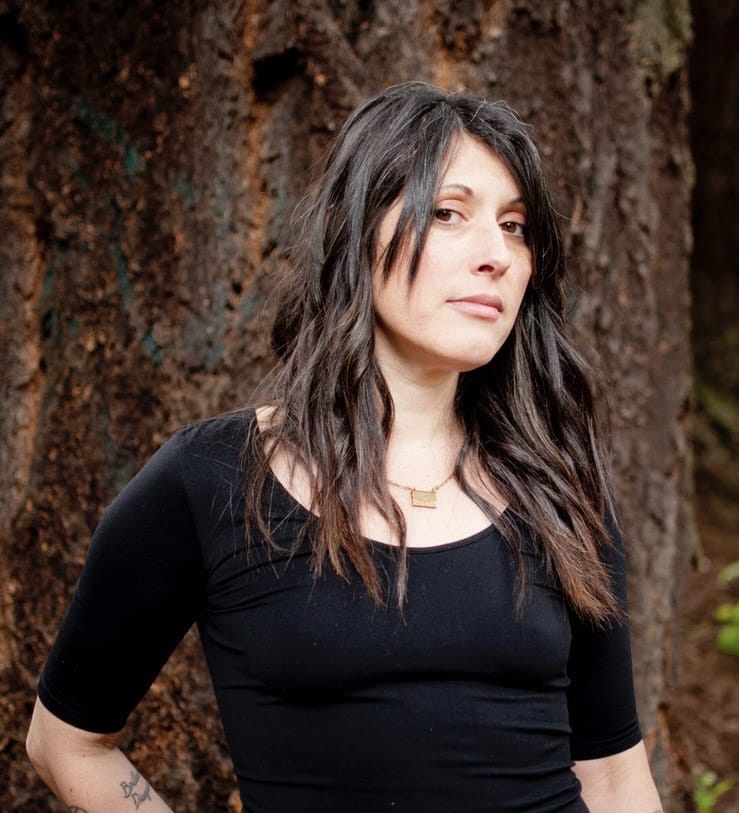We’re thrilled to introduce the 2024 Oregon Literary Fellowship recipients with individual features on our blog! Out-of-state judges spent several months evaluating the 500+ applications we received, and selected eight writers and two publishers to receive grants of $3,500 each. Literary Arts also awarded two Oregon Literary Career Fellowships of $10,000 each. The 2024 Fellowship recipients will be recognized at the 2024 Oregon Book Awards ceremony on April 8.

Karleigh Frisbie Brogan (she/her) is a 2024 Oregon Literary Fellow in Nonfiction and a recipient of the Leslie Bradshaw Fellowship. She holds an MFA from Portland State University. Her work has been published in The Atlantic, Vol. 1 Brooklyn, Entropy, NAILED, The Washington Post, and elsewhere. She is the recipient of the 2023 George Pascoe Miller Scholarship for the Community of Writers Summer Workshop (formerly the Squaw Valley Writer’s Conference), was a 2022 Rona Jaffe scholar for the Bread Loaf Writers’ Conference, received a 2020 Regional Arts and Culture Council grant, and received the 2019 Tom and Phyllis Burnam Award in nonfiction. Her work has also been supported by Tin House and the Sewanee Writers’ Conference.
Q & A WITH LITERARY ARTS
What is the most exciting thing about receiving an Oregon Literary Fellowship?
The most exciting thing about receiving an Oregon Literary Fellowship is the fact that I’ve applied countless years in a row, assuming, at this point, that I’d probably never get one, but that it was always worth the try regardless. Receiving one truly taught me never to give up on things; that my time will come when it’s supposed to.
How would you describe your creative process?
My creative process involves a lot of gathering: things I see and hear and smell when I’m out in the world, whether in nature or in the city or somewhere in between. I look for patterns. For likenesses. I jot things on post-its or in my phone. I take a lot of walks. And pictures. I change around my environment, working in different rooms in the house or in different coffee shops.
What keeps you motivated and inspired as a writer?
Reading the works of other writers keeps me inspired.
What are you working on right now?
I’m working on a memoir about mothers and drugs and other comforts. I’m also working on a novel about a woman who returns to her family’s dilapidated cabin in a town greatly impacted by climate change.
Do you have any advice for future applicants?
See question 1!
EXCERPT FROM HOLDING
The opiate nod exists in the gray space of in-between. It is neither/nor. It exists somewhere between asleep and awake—the perpetual state of newborn babies and housecats. Little dreamlets colored my consciousness, dazzled my eyelids with images I followed into fragmented narratives and literal trains of thought. (I often dreamt of a slow-moving steam engine with a red and gold caboose. Other times, a carousel with pastel-colored horses with terrifying mouths.) The nod felt exactly like those moments after hitting the snooze button—the blissful awareness of slipping back into slumber.
The nod exists somewhere between alone and accompanied. My companions and I shared the same destination, a similar and simultaneous experience. We were together on an empathic level yet isolated within our internal explorations. It reminded me of summering at my family’s lake cabin: Mom spending hot afternoons in the shade, thumbing fashion mags; Dad scraping the grill with a wad of aluminum foil or playing solitaire; my sisters Aly and Molly with their paint-with-water books, and my brother Aaron wiggling on a beach towel, surrounded by pillows so he wouldn’t roll away. Me, I wrote “books” about living on a volcanic island where I had to travel by canoe over split-pea waters. I felt most connected to my family when we were all lost in our separateness. And so, M and J and C felt, in some ways, like family.
A friend with a preference for uppers once told me that “H seems like a real bummer party.” It’s true, the heroin scene wasn’t energetic enough to be considered a proper party by most people’s standards, but I found it to be more intensely social in the anthropological or maybe zoological sense of the word. Here were unlikely members coming together for what had become our basic survival. We pooled resources, planned scams, worked shifts. We helped each other out and, inevitably, ripped each other off. The people I’ve encountered over the years were, like me, usually tender-fleshed to the pain and commotion of life. Fittingly, our parties didn’t pop off, but curled in. Our reveling was wrong-side-up.
Perhaps most accurately, the nod exists somewhere between dead and alive. The breath shallows, the pulse thins, and the bodily systems lag. I’ve watched friends tip too far, turn blue and become unresponsive to slaps and shakes and mouth-to-mouth. I’ve read that near-death survivors often recount feeling euphoric when on that cusp, flooded with a warmth that is often described as being in the presence of God. Some see a light. Heroin artificially produces comparable sensations, verge-of-death unnecessary. It’s a shortcut, a backwards lifehack wherein ecstasy leads to death, not the other way around. I’ve often wondered if being high is what it feels like to be a ghost.
JUDGE’S COMMENTS
“Karleigh Frisbie Brogan’s work tears open addiction’s locked boxes to reveal profound, deeply-felt truths about love, lineage, and care. With candor, grace, intelligence, and wit, Brogan defies reductive narratives about substance use disorder and insists on a fuller, truer story. This is transformative writing, the kind that sends you back into a world remade in its image: brutal, strange, resplendent, and profoundly humane. Creative nonfiction at its finest and most surefooted. When we say, ‘stories the world needs,’ this is it.”
– Jessica Hendry Nelson


